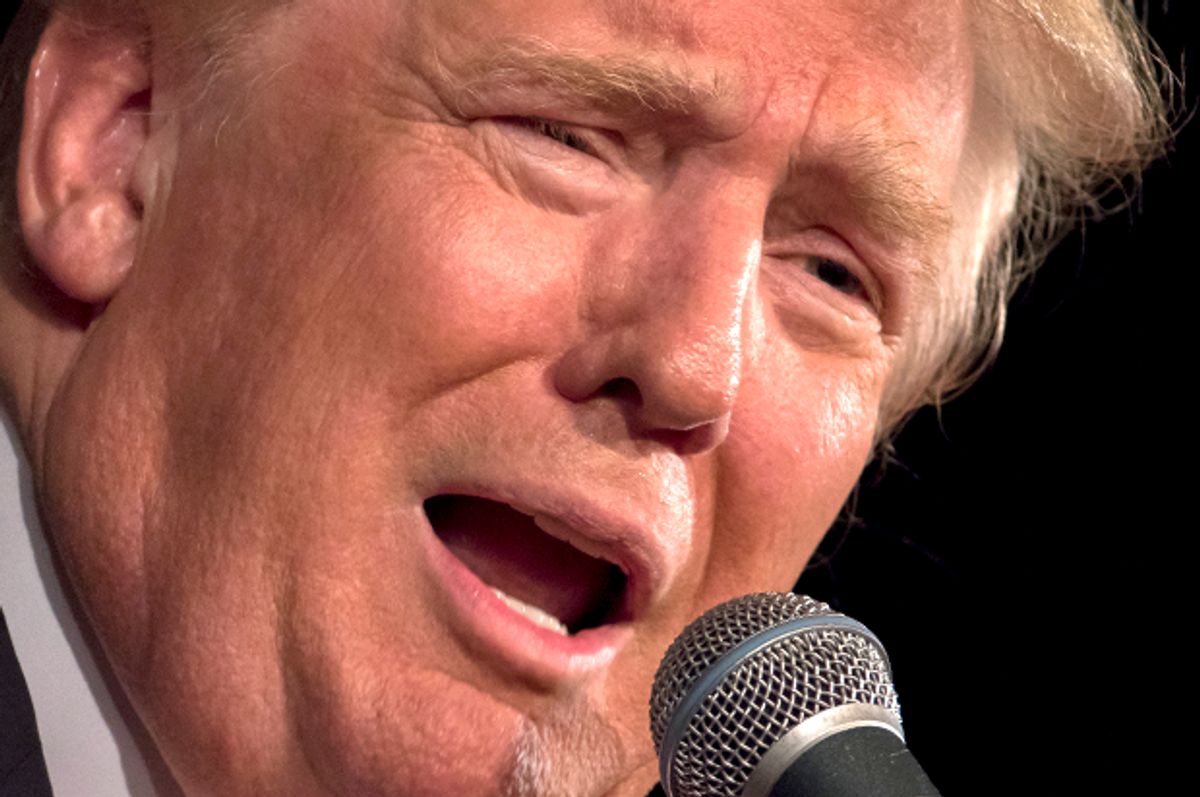 Donald Trump has indelibly associated his presidential campaign with the cause of opposing political correctness. He has every right to do this – but we in the media need to make sure that ideas which are simply “un-PC” are distinguished from near-criminal irresponsibility.
Donald Trump has indelibly associated his presidential campaign with the cause of opposing political correctness. He has every right to do this – but we in the media need to make sure that ideas which are simply “un-PC” are distinguished from near-criminal irresponsibility.
This brings us to Trump’s comments after hearing that a Hispanic homeless man in Boston had been viciously assaulted by his supporters.
“It would be a shame,” Trump briefly observed, before continuing: “I will say that people who are following me are very passionate. They love this country and they want this country to be great again. They are passionate.”
He similarly qualified his regret in a tweet:
Just to be clear, we’re not talking about hecklers who uttered a stray racial slur. Scott and Steve Leader urinated on a man’s face while he was sleeping, punched him repeatedly and beat him with a metal pole. As they did so, they proclaimed that “Donald Trump is right, all these illegals need to be deported.”
When Trump talks about the “passion” of his supporters, he is implicitly referring to how they might mimic his “un-PC” rhetoric on issues like illegal immigration, misogynistic language, or (going back four years) President Obama’s birth certificate. Taking those positions may or may not be racist (hence the debate over political correctness), but they are very different from an act of criminal assault. When Trump fails to see the difference between the former and the latter, he risks proving the pro-PC crowd right in the ugliest possible way.
To illustrate this point, compare Trump’s response to these criminals with a similar incident almost 37 years ago. Former Gov. George C. Wallace of Alabama, a notorious segregationist, was running for president on a third-party ticket that focused in large part on his opposition to civil rights for racial minorities (he ultimately netted more than 13 percent of the popular vote) and, predictably, his rhetoric frequently inspired acts of violence among his supporters. On one occasion, five teenagers were assaulted while protesting at a Wallace rally in Chicago. His response is worth republishing in full:
“I’m sorry it happened. If I had my way, no one would get hit. I acknowledge the right to picket peacefully.”
Wallace may have gone on from there to talk about his own encounters with violence (and he would tragically suffer a near-assassination in 1972 that left him paralyzed from the waist down), but he never allowed the focus of what had happened to shift away from the issue of criminality. Even one of America’s most infamous racial demagogues understood that he had a public responsibility to draw a line between rhetoric, however incendiary, and direct acts of violence. It would have been unconscionable to do otherwise.
Trump, by comparison, has yet to openly acknowledge that crucial distinction. This is not a situation that can be chalked up to mere political enthusiasm; indeed, it isn’t even like the violence at the Wallace rally, in which the targets were at least deliberate political actors. This was a violent crime in which an innocent person was targeted based solely on his racial background, clearly motivated by hate and possibly inspired by Trump’s own words. He cannot be allowed to spin it as anything else, any more than the media can permit him to add caveats to any expressions of regret he may offer. He doesn’t have to apologize if he doesn’t think he did anything wrong, but he absolutely must make it clear that these kinds of actions are beyond the pale – and unequivocally condemn anyone who commits them, no ifs, ands, or buts.
So far he has not issued any such unqualified condemnation, and that is incredibly troubling. Without it, Trump’s growing legion of supporters may feel encouraged to perpetrate more acts of racially motivated violence. They’ll believe – and not necessarily be wrong – that a growing contingent of those who would assume political power in this country will secretly condone acts of criminality against racial minorities. At a time when our law enforcement officials already treat non-whites like acceptable targets for violence, this is an incredibly dangerous precedent to set.
The stakes here transcend questions of political correctness or the tone of the debate surrounding a particular set of issues. In a nation that has always been rife with racial tension, it is essential to clearly delineate that debate over public policy can never be permitted to disintegrate into violence. That potential always lurks beneath the surface, so responsible public servants (or, in Trump’s case, aspiring public servants) are mindful of it. If Trump fails to meet his responsibility here – and we in the media don’t force him to do so – than any future blood that is shed will be on all of our hands.

Shares